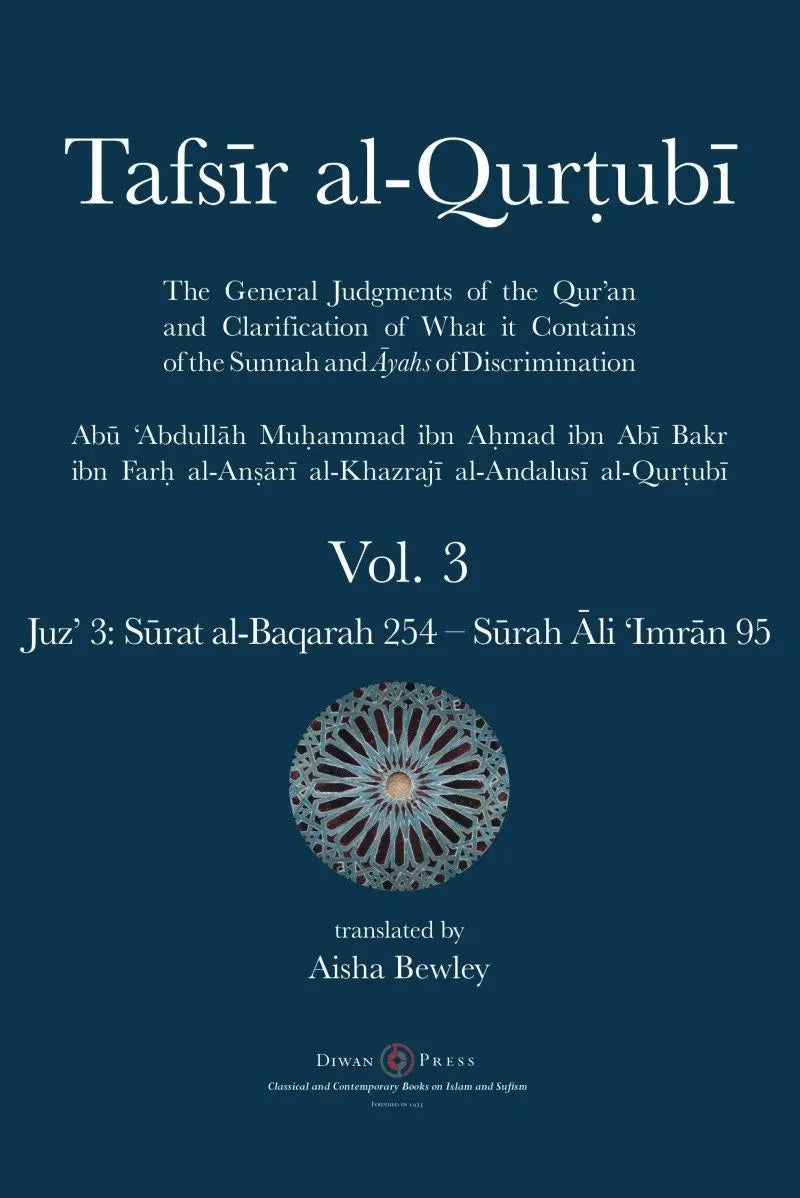About The Book
The tafsīr of al-Qurṭubī is perhaps one of the most compendious of them all and is certainly among the most famous. As its title, al-Jāmi‘ li Aḥkām al-Qur’ān – The General Judgments of the Qur’an, suggests, its main focus is on the rulings and judgments to be found in the Qur’ān. However, in the course of doing that, al-Qurṭubī examines all the relevant sciences necessary, such as the ḥadīth pertaining to the āyahs, events in the sīrah, what the Companions, their Followers and other noted people of knowledge said about the āyahs, essential aspects of Arabic etymology, syntax and usage, copiously illustrated by examples, and much more.
Among the important matters covered in this volume are extensive commentary on the Āyat al-Kursī the greatest āyat in the Qur’an, the āyats on usury and the longest āyat in the Qur’an which regulates credit and debt, among the very last revealed to the Messenger of Allah ﷺ the unparalleled āyats that conclude Sūrat al-Baqarah, and the passage from Sūrah Āl ‘Imrān that explicates the difference between āyats containing clear judgements and others that are open to interpretation. There is of course, the eponymous theme of the sūrah, the family of ‘Imrān: Maryam, her son ‘Īsā, Zakariyyā’ and his son Yaḥyā, peace be upon them all.
About The Author
Abū Muḥammad ibn Aḥmad ibn Abī Bakr ibn Farḥ al-Anṣārī al-Khazrajī al-Andalusī al-Qurṭubī (610-11 AH/1214 CE – 671 AH/1273 CE) was born in Cordoba in Spain, but moved in 1236 to Cairo in Egypt, where he lived until his death. He was Mālikī in fiqh, and although he composed other works, he is most famous for this tafsīr.
About The Translator
Aisha Bewley is the translator of a large number of classical works of Islam and Sufism, often in collaboration with Abdalhaqq Bewley, notably The Noble Qur’an – a New Rendering of Its Meanings in English; Muhammad, Messenger of Allah – the translation of Qāḍī ‘Iyāḍ’s ash-Shifā’; the Muwaṭṭa’ of Imam Mālik ibn Anas; and Imam an-Nawawī’s Riyāḍ aṣ-Ṣāliḥīn. She is the author of a number of books including Democratic Tyranny and the Islamic Paradigm.
show more

